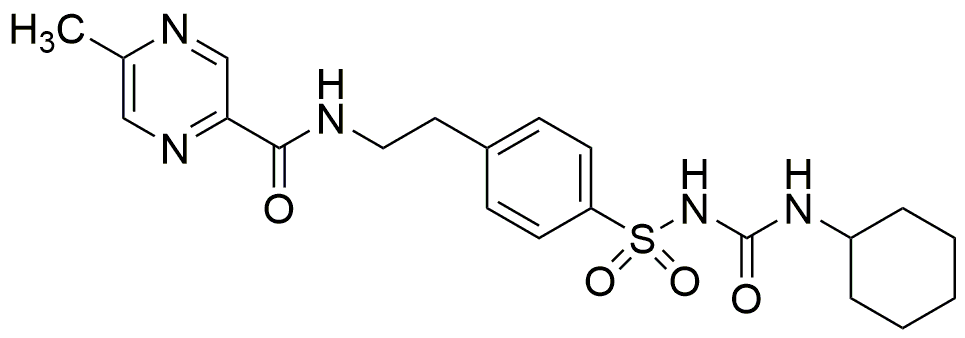Glipizide is widely utilized in research focused on:
- Diabetes Management: Primarily used as an oral hypoglycemic agent, it helps control blood sugar levels in patients with type 2 diabetes, making it essential in endocrinology and diabetes care.
- Pharmaceutical Development: Researchers explore its efficacy and safety profiles, aiding in the development of new formulations or combination therapies to enhance patient outcomes.
- Clinical Studies: Frequently involved in clinical trials to assess its long-term effects and interactions with other medications, providing valuable data for healthcare professionals.
- Patient Education: Used in educational programs for patients to understand the importance of medication adherence and lifestyle changes in managing diabetes effectively.
- Comparative Effectiveness Research: Studies comparing glipizide with other diabetes medications help healthcare providers make informed decisions about treatment options tailored to individual patient needs.
General Information
Properties
Safety and Regulations
Applications
Glipizide is widely utilized in research focused on:
- Diabetes Management: Primarily used as an oral hypoglycemic agent, it helps control blood sugar levels in patients with type 2 diabetes, making it essential in endocrinology and diabetes care.
- Pharmaceutical Development: Researchers explore its efficacy and safety profiles, aiding in the development of new formulations or combination therapies to enhance patient outcomes.
- Clinical Studies: Frequently involved in clinical trials to assess its long-term effects and interactions with other medications, providing valuable data for healthcare professionals.
- Patient Education: Used in educational programs for patients to understand the importance of medication adherence and lifestyle changes in managing diabetes effectively.
- Comparative Effectiveness Research: Studies comparing glipizide with other diabetes medications help healthcare providers make informed decisions about treatment options tailored to individual patient needs.
Documents
Safety Data Sheets (SDS)
The SDS provides comprehensive safety information on handling, storage, and disposal of the product.
Product Specification (PS)
The PS provides a comprehensive breakdown of the product’s properties, including chemical composition, physical state, purity, and storage requirements. It also details acceptable quality ranges and the product's intended applications.
Certificates of Analysis (COA)
Search for Certificates of Analysis (COA) by entering the products Lot Number. Lot and Batch Numbers can be found on a product’s label following the words ‘Lot’ or ‘Batch’.
Numéro de catalogue
Numéro de lot/série
Certificates Of Origin (COO)
This COO confirms the country where the product was manufactured, and also details the materials and components used in it and whether it is derived from natural, synthetic, or other specific sources. This certificate may be required for customs, trade, and regulatory compliance.
Numéro de catalogue
Numéro de lot/série
Safety Data Sheets (SDS)
The SDS provides comprehensive safety information on handling, storage, and disposal of the product.
DownloadProduct Specification (PS)
The PS provides a comprehensive breakdown of the product’s properties, including chemical composition, physical state, purity, and storage requirements. It also details acceptable quality ranges and the product's intended applications.
DownloadCertificates of Analysis (COA)
Search for Certificates of Analysis (COA) by entering the products Lot Number. Lot and Batch Numbers can be found on a product’s label following the words ‘Lot’ or ‘Batch’.
Numéro de catalogue
Numéro de lot/série
Certificates Of Origin (COO)
This COO confirms the country where the product was manufactured, and also details the materials and components used in it and whether it is derived from natural, synthetic, or other specific sources. This certificate may be required for customs, trade, and regulatory compliance.

